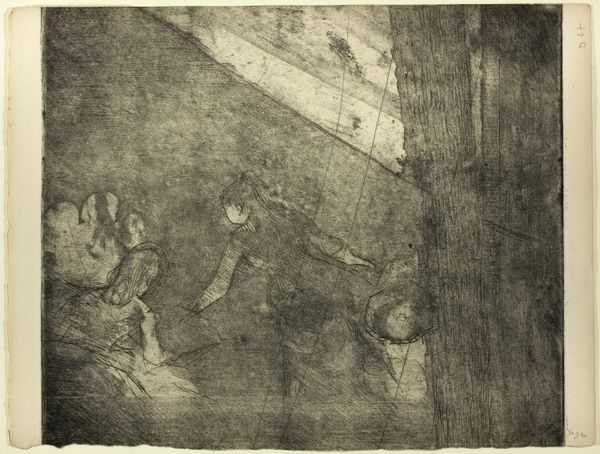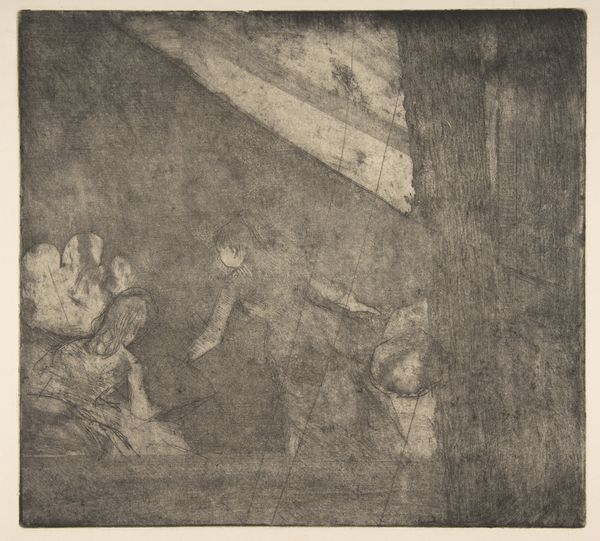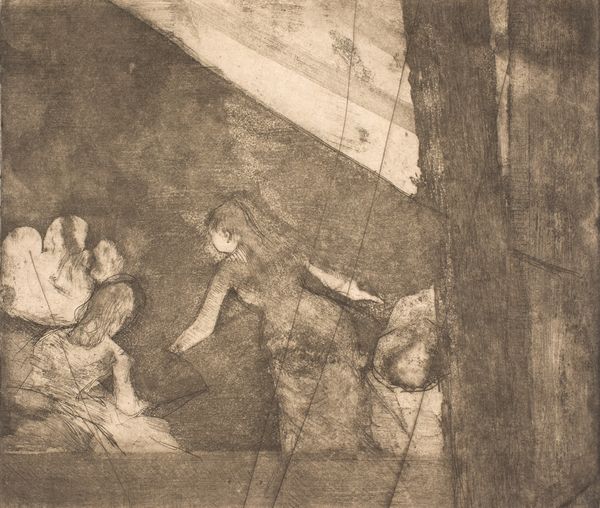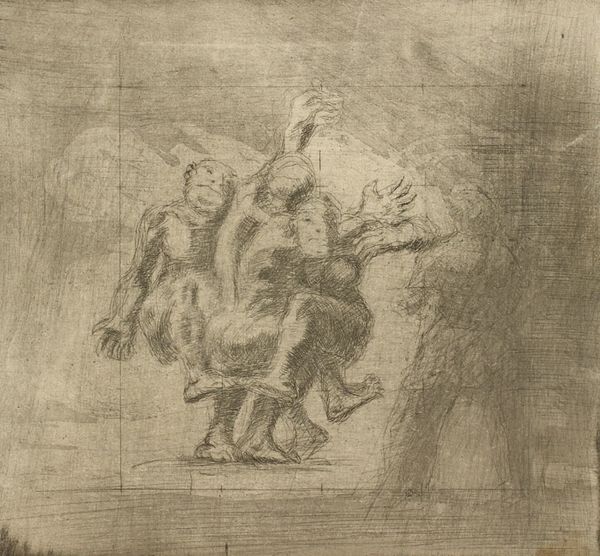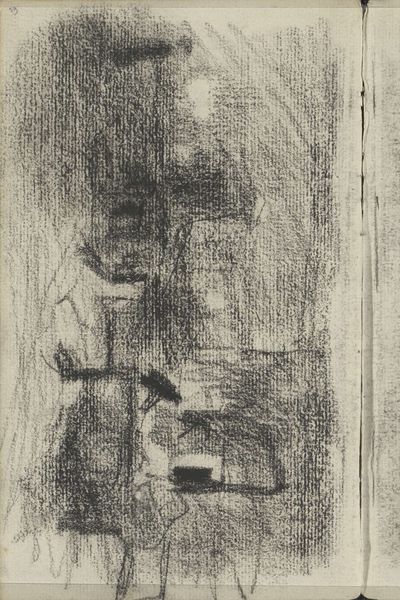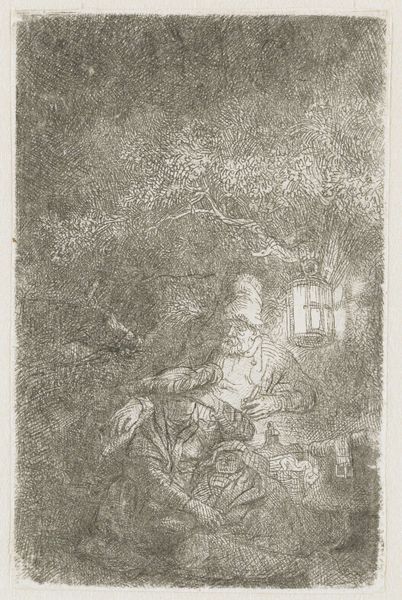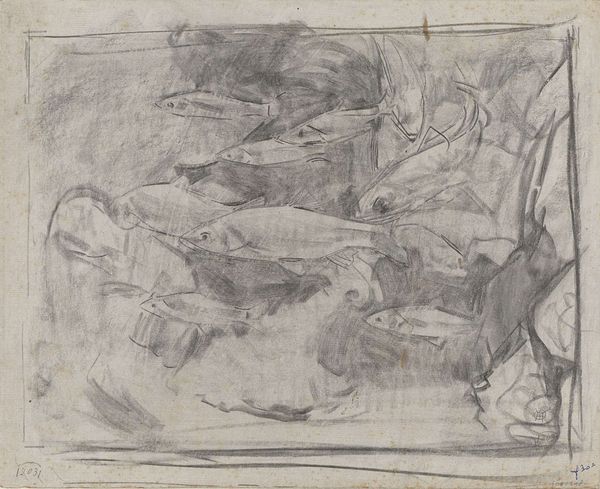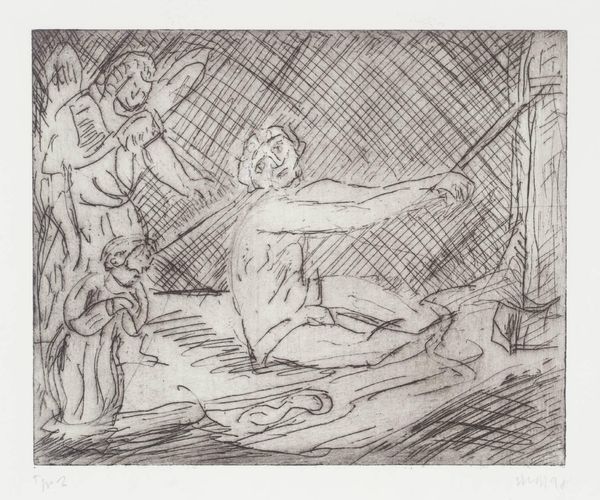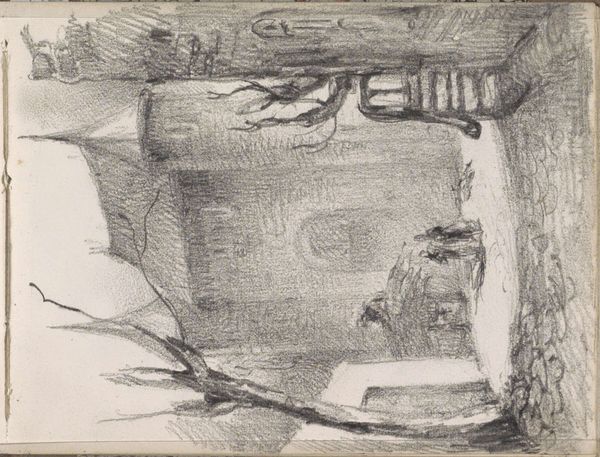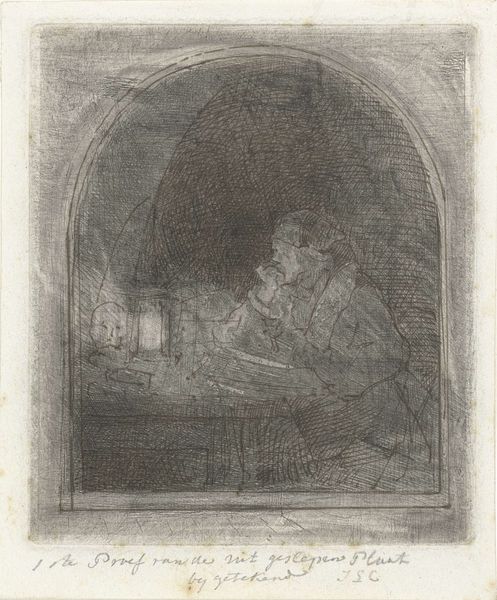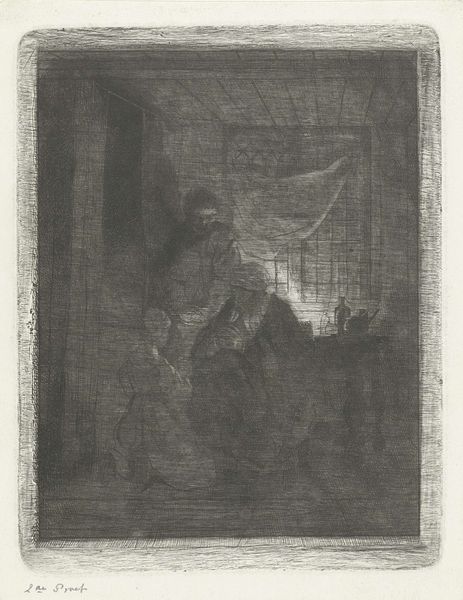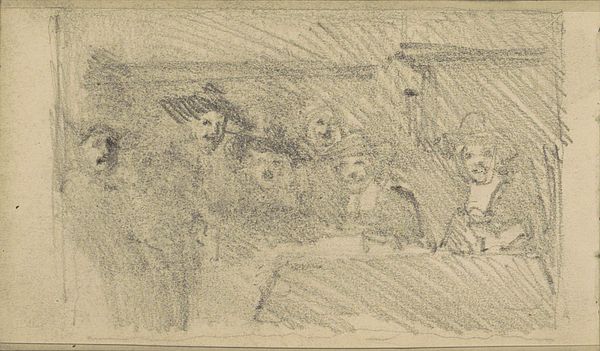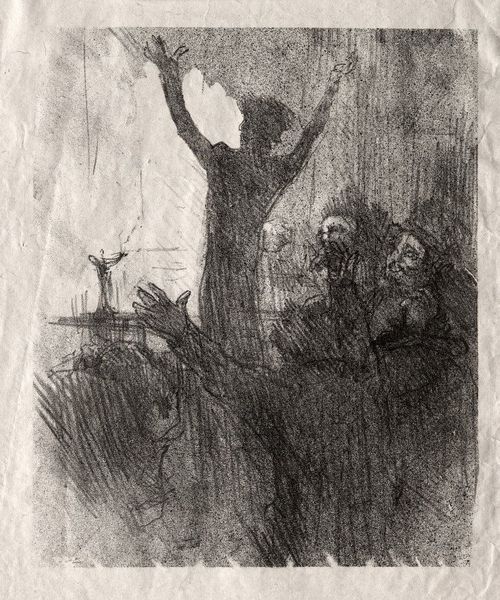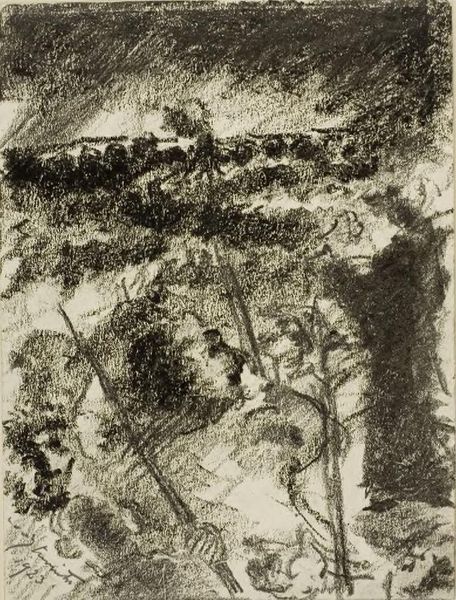
drawing
#
pencil drawn
#
drawing
#
amateur sketch
#
toned paper
#
light pencil work
#
pencil sketch
#
charcoal drawing
#
charcoal art
#
pencil drawing
#
pen-ink sketch
#
watercolor
Copyright: Public Domain: Artvee
Editor: This is Degas' "Aux Ambassadeurs," made between 1879 and 1880, and it’s a drawing. It feels very raw, almost unfinished, like a fleeting glimpse. What strikes you about it? Curator: The stark contrast between the hatched areas and open space structures the image and dictates its legibility. Note how Degas orchestrates depth not through linear perspective, but through tonal variation and the density of mark-making. It is these deliberate aesthetic choices that command our attention. Editor: I see what you mean about the tonal variations. What do you make of the figures' poses? They seem so… casual? Curator: Precisely. Degas subverts traditional portraiture by foregoing idealized forms. The dynamism resides not in heroic gestures, but rather, in the seemingly incidental arrangements of line and form. It challenges the conventional relationship between artist, subject, and viewer. Is there anything, technically, that particularly draws your attention? Editor: Well, I'm interested in the way he uses the hatching to suggest both form and light. Is there a specific term for this? Curator: One might describe this method as "chiaroscuro" achieved through cross-hatching; the controlled juxtaposition of light and shadow rendered through layered linear strokes. How does this formal observation influence your interpretation of the subject? Editor: It emphasizes the immediacy of the scene, making it seem like we are witnessing a private, unposed moment. The medium and technique work together. Curator: Indeed. The visual elements—the formal structure—actively shape and informs our understanding. It's the power of intrinsic elements. Editor: This close analysis has given me a new way to think about the power of composition! Curator: I concur. Deconstructing the artistic intent via the structure is where one truly begins to observe the art.
Comments
No comments
Be the first to comment and join the conversation on the ultimate creative platform.
